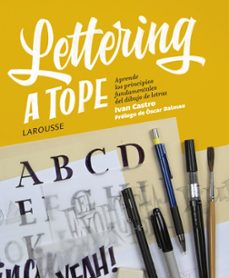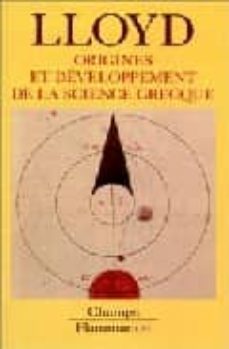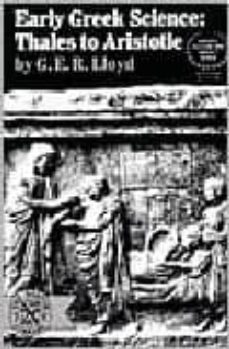Imprescindibles
Más vendidos Libros más leídos eBooks más leídos Todos los libros Todos los libros Autores destacados Series y sagas
Recomendados Libros recomendados Autores destacados Libros que inspiran Vidas con historia LGTBIQ+ English books
Ficción
Literatura Contemporánea Estudios literarios Clásicos Cuentos Poesía Teatro Libros de bolsillo Sagas literarias
Géneros literarios Novela romántica y erótica Novela negra Novela histórica Narrativa fantástica Novela de ciencia ficción Novela de terror Narrativa de humor Narrativa de viajes
No Ficción
Ciencias y tecnología Biología Ciencias Ciencias naturales Divulgación científica Informática Ingeniería Matemáticas Medicina Salud y dietas Formación Idiomas Estilo de vida Libros de Cocina Guías de viaje Narrativa de viajes Deportes Libros de Juegos Manualidades
Humanidades Autoayuda y espiritualidad Ciencias humanas Derecho Economía y Empresa Psicología y Pedagogía Filosofía Sociología Filología Biblioteconomía Estudios filológicos Estudios lingüísticos Estudios literarios Historia y crítica de la Literatura
Infantil
Juvenil
#Jóvenes lectores Narrativa juvenil Clásicos adaptados Libros Wattpad Libros Booktok Libros de influencers Libros de Youtubers Libros Spicy Juveniles Libros LGTBIQ+ Temas sociales Libros ciencia ficción Libros de acción y aventura Cómic y Manga Juvenil Cómic Juvenil Manga Shonen Manga Shojo Autores destacados Jennifer L. Armentrout Eloy Moreno Nerea Llanes Hannah Nicole Maehrer
Libros de fantasía Cozy Fantasy Dark academia Hadas y Fae Romantasy Royal Fantasy Urban Fantasy Vampiros y hombres lobo Otros Misterio y terror Cozy mistery Policiaca Spooky Terror Thriller y suspense Otros
Libros románticos y de amor Dark Romance Clean Romance Cowboy Romance Mafia y amor Romance dramatico Romcom Sport Romance Otros Clichés Enemies to Lovers Friends to Lovers Hermanastros Slow Burn Fake Dating Triángulo amoroso
Cómic y Manga
Novela gráfica Novela gráfica americana Novela gráfica europea Novela gráfica de otros países Personajes, series y sagas Series y sagas Star Wars Superhéroes Cómics DC Cómics Marvel Cómics otros superhéroes Cómics Valiant
eBooks
Literatura Contemporánea Narrativa fantástica Novela de ciencia ficción Novela de terror Novela histórica Novela negra Novela romántica y erótica Juvenil Más de 13 años Más de 15 años Infantil eBooks infantiles
Humanidades Autoayuda y espiritualidad Ciencias humanas Economía y Empresa Psicología y Pedagogía Filosofía Historia Historia de España Historia Universal Arte Cine Música Historia del arte
Ciencia y tecnología Ciencias naturales Divulgación científica Medicina Salud y dietas Filología Estudios lingüísticos Estudios literarios Historia y crítica de la Literatura Estilo de vida Cocina Guías de viaje Ocio y deportes
G.E.R. LLOYD
Recibe novedades de G.E.R. LLOYD directamente en tu email
Filtros
Del 1 al 6 de 6
FLAMMARION 9782080813657
En Grèce, entre le IIIe et le IIe siècle avant J.-C., on assiste à la naissance de la science. Mais d'où venait-il ce questionnement nouveau inspiré par les philosophes, sophistes, et médecins grecs? Quel contexte social, économique et idéologique a favorisé cette naissance?
Ver más
Tapa blanda
CAMBRIDGE UNIVERSITY PRESS 9780521556958
Tapa blanda
Siglo XXI de España Editores, S.A. 9788432309335
Si pueblos remotos tienen ideas distintas a las nuestras, ¿se debe a que tienen distintas mentalidades? ¿Carecían nuestros lejanos antepasados de lógica? Los historiadores han utilizado ampliamente la idea de que existen distintas mentalidades para describir y explicar la diversidad cultural. El profesor Lloyd rechaza este tipo de discurso psicologizante sobre mentalidades y propone un enfoque alternativo cuyo punto de partida son los contextos sociales de comunicacion. Al discutir conductas y creencias en apariencia irracionales (como, por ejemplo, la magia) y los ejemplos clasicos del nacimiento de la ciencia en Grecia y China, G. E. R. Lloyd muestra como diferentes formas de pensamiento coexisten en una misma cultura, pero dentro de contextos determinados convencionalmente. Las instituciones sociales definen reglas de argumentacion y prueba, adecuadas a las situaciones.
Ver más
Tapa blanda
NORTON (W.W.) 9780393005837
Although there is no exact equivalent to our term science in Greek, Western science may still be said to have originated with the Greeks, for they were the first to attempt to explain natural phenomena consistently in naturalistic terms, and they initiated the practices of rational criticism of scientific theories. This study traces Greek science through the work of the Pythagoreans, the Presocratic natural philosphers, the Hippocratic writers, Plato, the fourth-century B.C. astronomers, and Aristotle. G. E. R. Lloyd also investigates the relationships between science and philosophy and science and medicine; he discusses the social and economic setting of early Greek science; and he analyzes the motives and incentives of the different groups of writers.
Ver más
Tapa blanda
Del 1 al 6 de 6
































